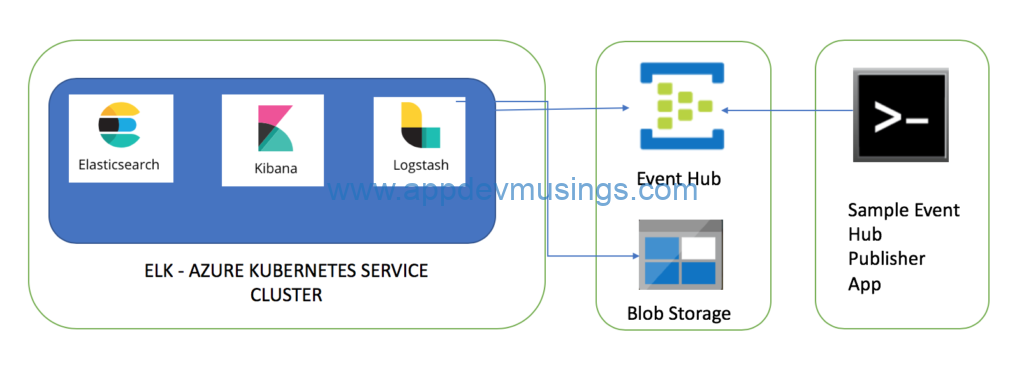This is second part of the series on deploying Elasticsearch, Logstash and Kibana (ELK) to Azure Kubernetes Service cluster. In this article I am going to share steps needed to enable Azure AD SAML based single sign on to secure Elasticsearch and Kibana hosted in AKS. I will also go through steps needed to secure communications in ELK cluster. The first part describes steps needed to deploy ELK to AKS and consume messages from Azure Event Hub
The third part describes steps needed to ingest Azure Redis Cache messages into Elasticsearch using Logstash’s Redis plugin.
Using SAML SSO for Elasticsearch with AAD means that Elasticsearch does not need to be seeded with any user accounts from the directory. Instead, Elasticsearch is able to rely on the claims sent within a SAML token in response to successful authentication to determine identity and privileges. I have referred to this article to enable SAML based single sign on for Elasticsearch.
Kibana, as the user facing component, interacts with the user’s browser and receives all the SAML messages that the Azure AD sends to the Elastic Stack Service Provider. Elasticsearch implements most of the functionality a SAML Service Provider needs. It holds all SAML related configuration in the form of an authentication realm and it also generates all SAML messages required and passes them to Kibana to be relayed to the user’s browser. It finally consumes all SAML Responses that Kibana relays to it, verifies them, extracts the necessary authentication information and creates the internal authentication tokens based on that. The component diagram has been updated to add Azure AD SAML based SSO integration.
The dev tools used to develop these components are Visual Studio for Mac/VS Code, AKS Dashboard, kubectl, bash and openssl. The code snippets in this article are mostly yaml snippets and are included for reference only as formatting may get distorted thus please refer to GitHub repository for formatted resources.

